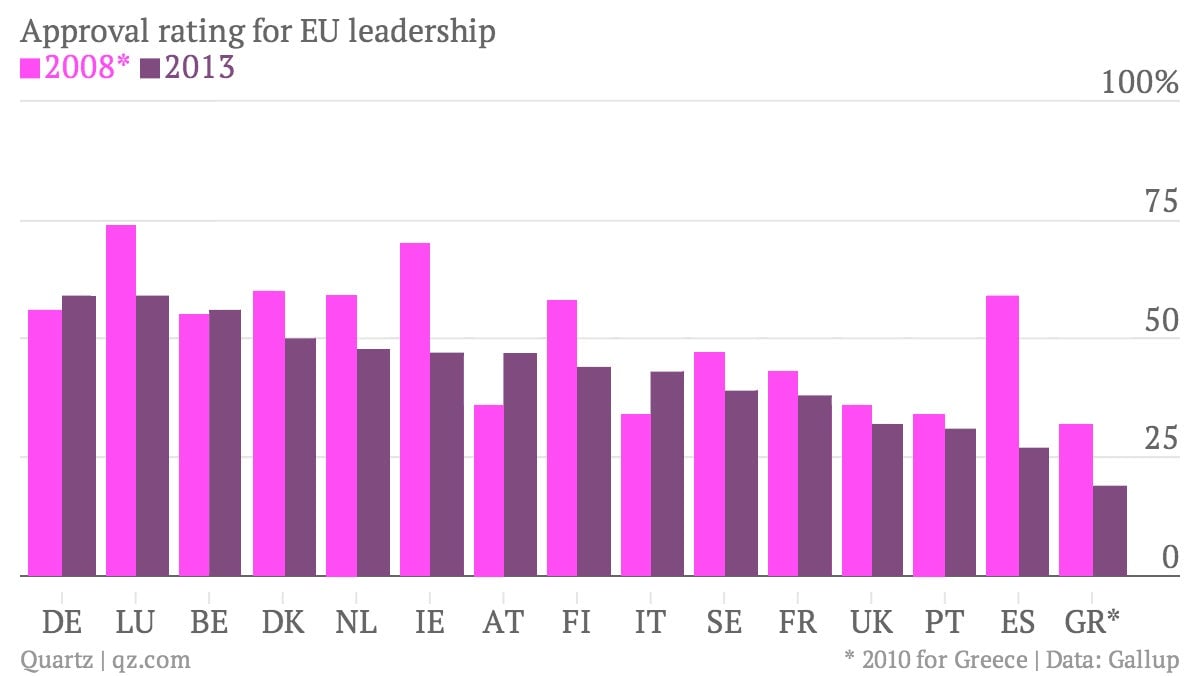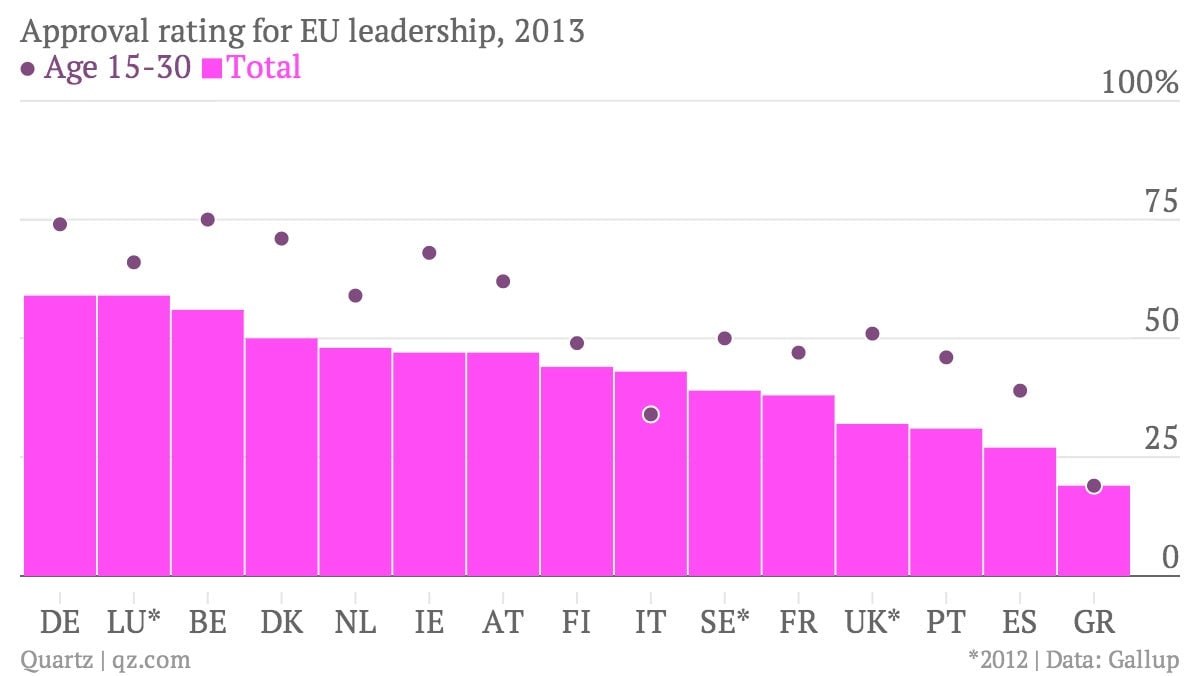Europe’s answers to the Tea Party are trying to get elected to an institution they despise
“I only expect one thing from the European system—that it explodes.” This is the latest pledge from Marine Le Pen (pictured above), the firebrand leader of the National Front, a populist right-wing political party in France. Her party is fielding candidates in local elections in 500 towns across France, looking to ride a wave of discontent with the country’s mainstream parties.


“I only expect one thing from the European system—that it explodes.” This is the latest pledge from Marine Le Pen (pictured above), the firebrand leader of the National Front, a populist right-wing political party in France. Her party is fielding candidates in local elections in 500 towns across France, looking to ride a wave of discontent with the country’s mainstream parties.
The big prize, however, is the election for the European parliament in May. According to some polls, the vehemently anti-EU National Front will garner more votes for the supranational parliament than any other party in France. Anti-establishment parties elsewhere in Europe are also poised to make big gains in the EU parliament, leading some to liken them to a European version of the Tea Party movement in the US.
The once-toothless European parliament has gained new powers (paywall) in recent years, flexing its muscles on everything from farm budgets to banking regulation and climate-change policy. The likes of Le Pen are dead set against ceding national sovereignty to the 751-member chamber that splits its time between Brussels and Strasbourg. Thus, they are keen to gain seats at the parliament so they can destroy it from the inside. (Cognitive dissonance is rarely an obstacle in the world of politics.)
A new poll of potential voters shows that this is no populist pipe dream. Support for the EU leadership has eroded over the past five years, and the drop in places like Greece and Spain, where EU institutions have played a role in imposing austerity in exchange for financial bailouts, has been particularly severe:

Fears of immigrants from the EU’s poorer east flooding into the west are also stoking tensions between the EU and several member states; the parties making gains in the polls, like Le Pen’s, tend to play up these fears, promising to restrict the freedom of movement that is a fundamental tenet of EU law. In this context, it’s easy to see why the upstart parties’ anti-EU message is gaining ground.
A silver lining for the more established parties, however, is that not everyone dislikes the EU as much. Gallup’s poll shows that younger voters hold much more favorable views of the EU than their older counterparts:

Even in places like Spain, where youth unemployment is an eye-watering 58%, younger voters are more approving of the austerity-minded EU than the general population. That could be because these younger people also have more to gain from the EU’s open-borders policy than their elders, as they are free to seek jobs wherever they can find them.
Turnout for European parliament elections is traditionally low—just 43% at the last election in 2009. Youth turnout, meanwhile, was only 29% in 2009, but some hope that higher stakes will compel this notoriously fickle group of voters to cast ballots this year. Gallup’s poll suggests that this could be good news for those who would shield the EU from those who plot to blow it up.